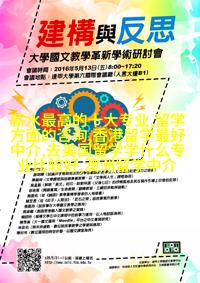北美留学经历后你将拥有什么样的职业优势呢
在全球化的今天,北美留学不仅是一种教育体验,更是通往国际职场的大门。对于那些渴望开拓视野、提升技能和扩展人脉的学生来说,选择北美留学是一个明智的决定。以下,我们将探讨一位在北美留学经历后的学生可能会获得哪些职业优势。

首先,语言能力是任何国际求职者所不可或缺的一项技能。在美国或加拿大的大学里,即使是在非英语专业,也必须通过TOEFL或IELTS等考试来证明自己的英语水平。长期生活和学习在这两个国家,不仅可以提高口语表达能力,还能增强书面沟通技巧,这对未来在多国企业工作至关重要。
其次,文化适应性也是一个关键点。在北美高校中,与来自世界各地不同背景的人交流合作,可以培养出广泛的文化适应力。这意味着你能够更好地理解不同的工作环境和客户需求,从而成为一个更加灵活和有效的团队成员。

此外,North American schools often have a diverse curriculum, which allows students to explore various fields of study. This exposure can broaden one's perspective and increase their ability to think critically and creatively, both of which are highly valued skills in the job market.
Another advantage is that North American universities place great emphasis on research and innovation. Students who participate in these activities gain hands-on experience in their chosen field, develop problem-solving skills, and build a strong network of contacts within their industry.

Moreover, many universities offer internship opportunities or work-study programs for international students. These experiences not only provide valuable work experience but also help students build connections with potential employers.
Upon graduation, many institutions provide career counseling services to help students find jobs that align with their interests and skills. Some even have established relationships with top companies worldwide.

In conclusion, studying abroad in North America offers numerous advantages when it comes to building a successful career. From improving language proficiency to enhancing cultural adaptability and gaining practical work experience through internships or part-time jobs, the benefits are extensive. Furthermore, the networking opportunities provided by such prestigious institutions can lead to future job prospects across different countries.
For those considering pursuing higher education overseas but still unsure about its long-term impact on your professional life should take comfort from knowing that investing time abroad will yield substantial dividends later down the line as you navigate an increasingly interconnected global workforce.
